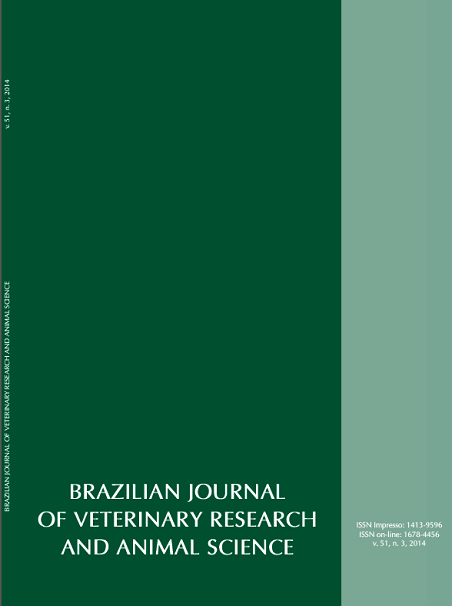Canine mammary tumors in Santos, Brazil: clinicopathological and survival profile
DOI:
https://doi.org/10.11606/issn.1678-4456.v51i3p252-262Keywords:
Clinical stage, Chemotherapy, Recurrence, Survival, Tumor diameterAbstract
Tumors of the mammary glands are the most common neoplasms in dogs in our country; however, there are few Brazilian reports dedicated to clinicopathological and survival studies about this disease. This report aims the clinical and pathological study of canine mammary tumors in the Santos Metropolitan Region, an area in Sao Paulo state with an estimated canine population of 120,000 animals. Data of 14,298 dogs were collected retrospectively from the medical records of the Veterinary Medical Teaching Hospital of the Metropolitan University of Santos – São Paulo – Brazil. During the study period, from records of 317 females with histopathological diagnosis of neoplasia, 170 were mammary epithelial lesions distributed in 13 benign tumors, 152 malignant (89.4% of diagnosis) and 5 non-neoplasic epithelial lesions (ductal hyperplasia). The highest prevalent malignant tumor was tubular carcinoma (38.2% of diagnosis) and Grade I tumors, corresponding to 73.0% of all diagnosis. The results have shown clinical staging of canine mammary neoplasms as an important prognostic survival factor and, in a multivariate analysis, tumor diameter, tumor grade, adjuvant chemotherapy and recurrence as covariates with predictive value for survival. Moreover, the high prevalence of tubular carcinoma qualifies the canine population ofSantosas a promising model for the translational study of this disease.
Downloads
Downloads
Published
Issue
Section
License
The journal content is authorized under the Creative Commons BY-NC-SA license (summary of the license: https://





